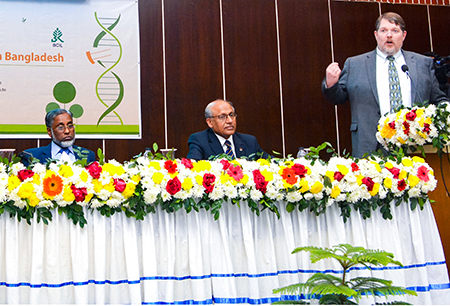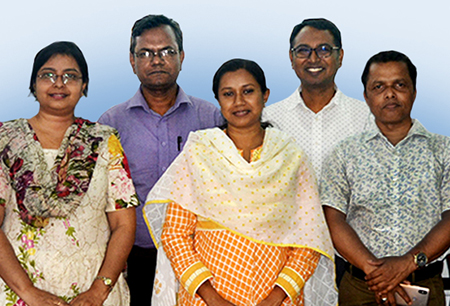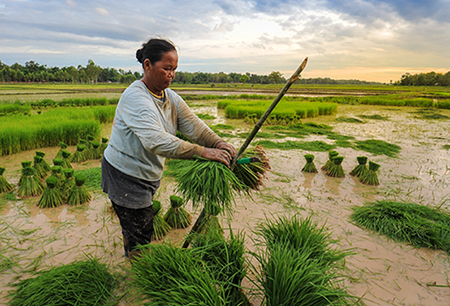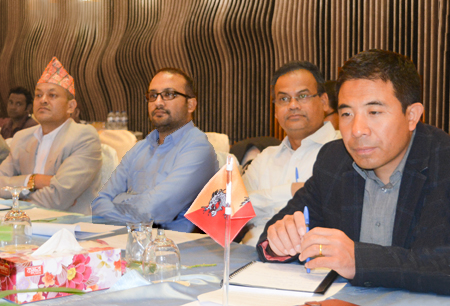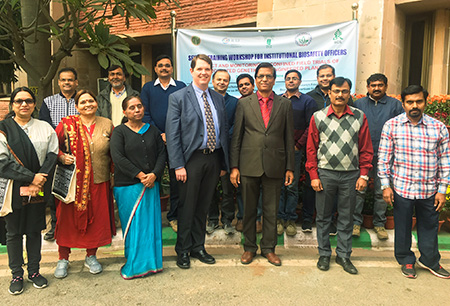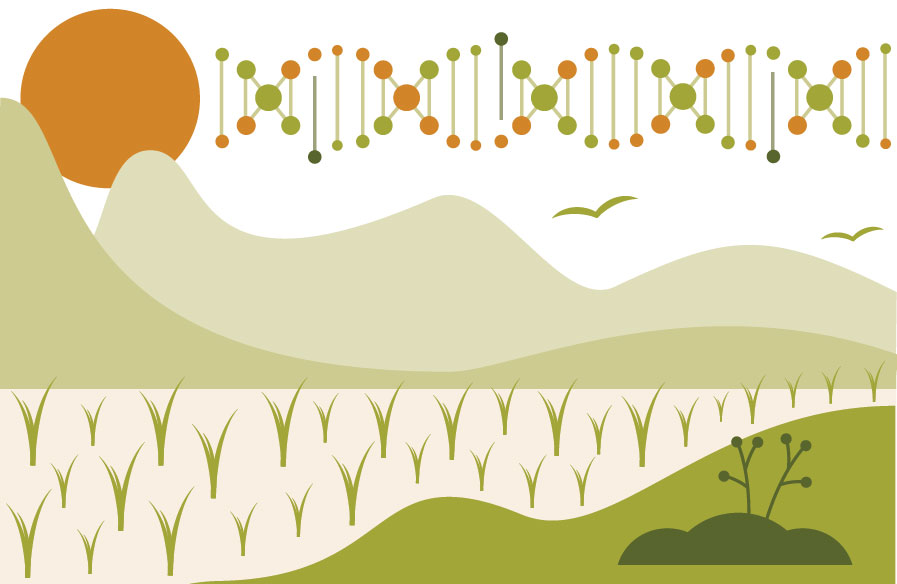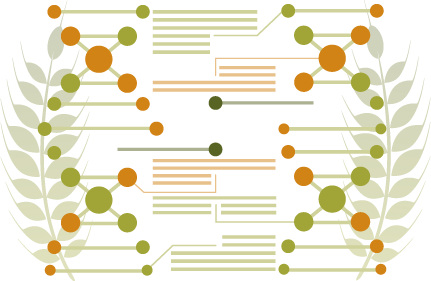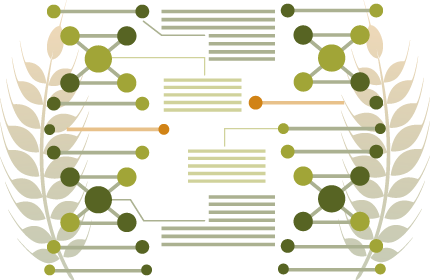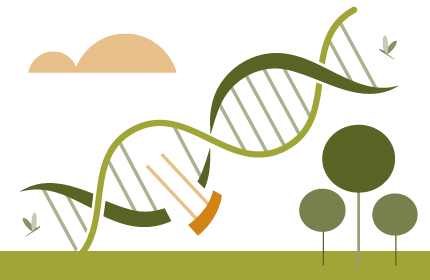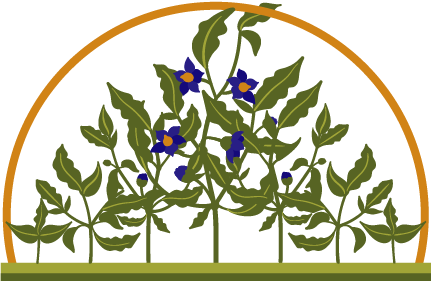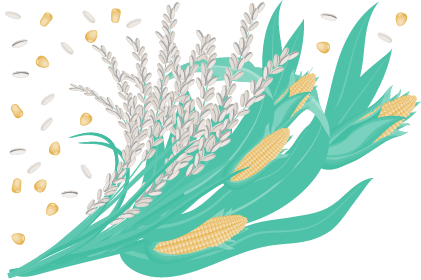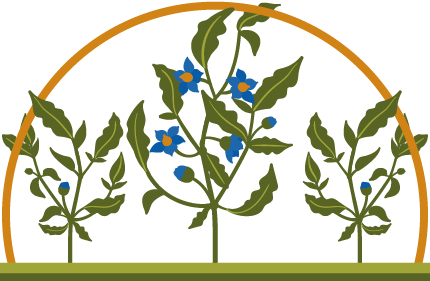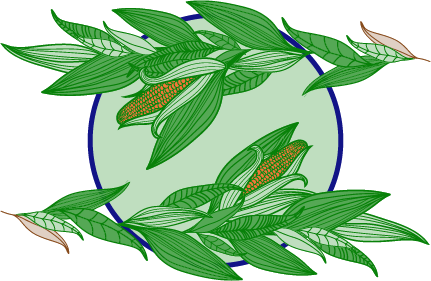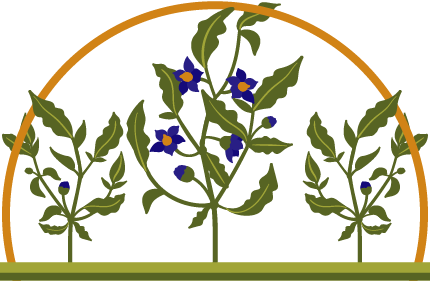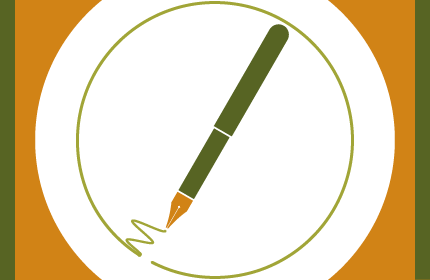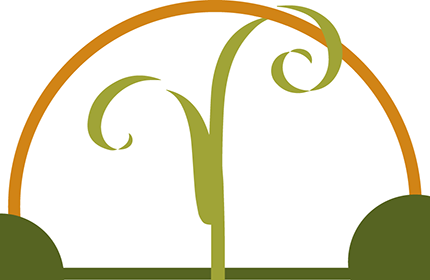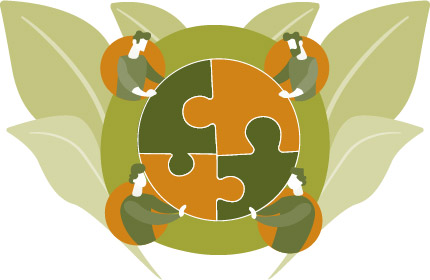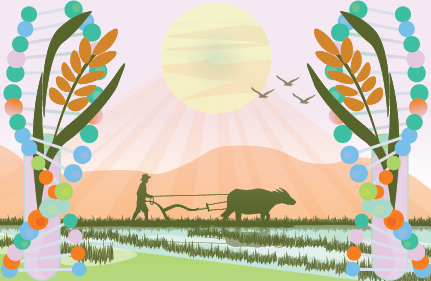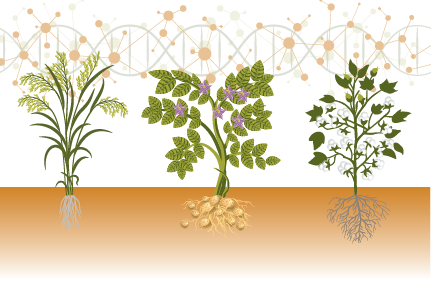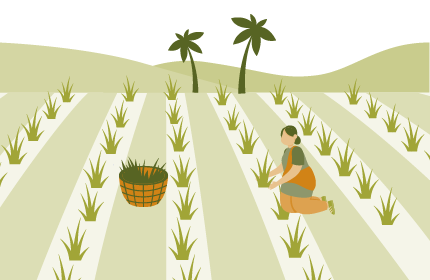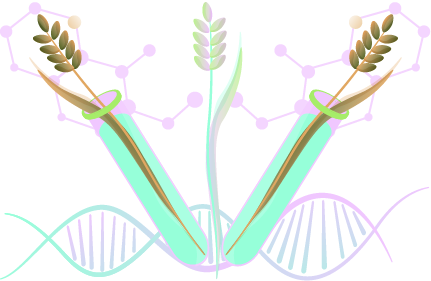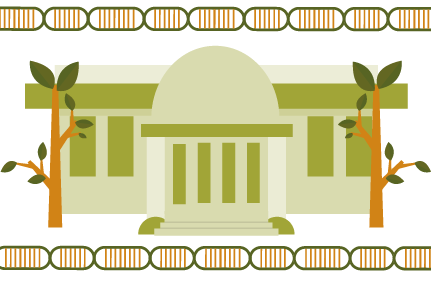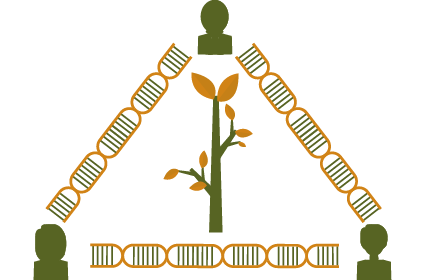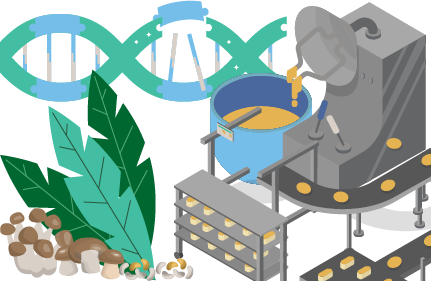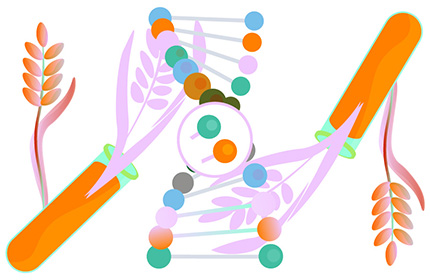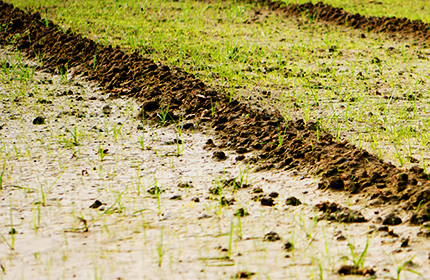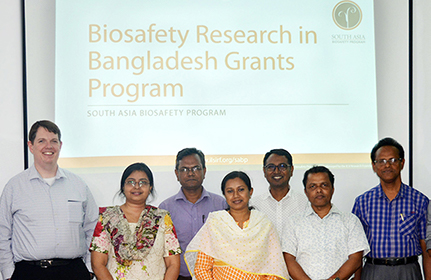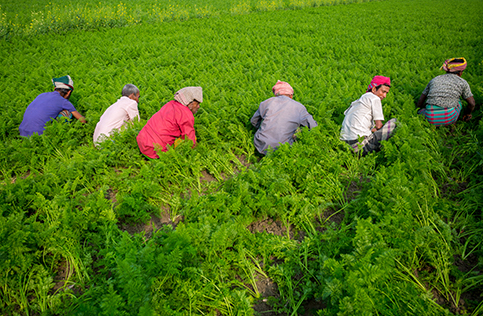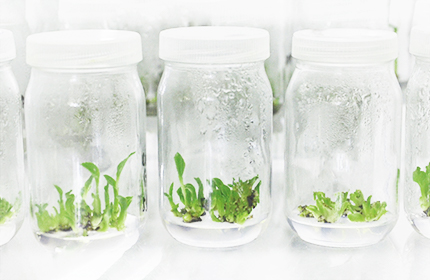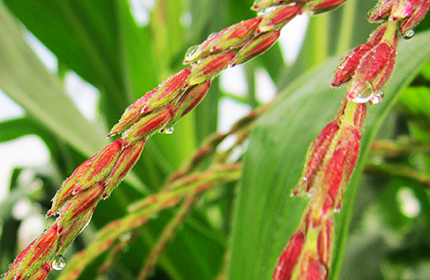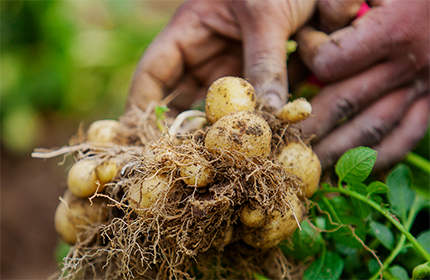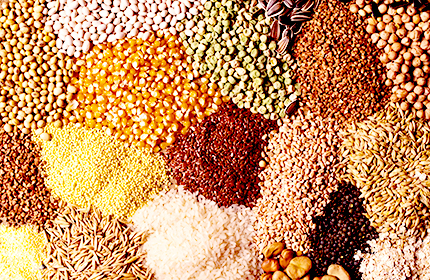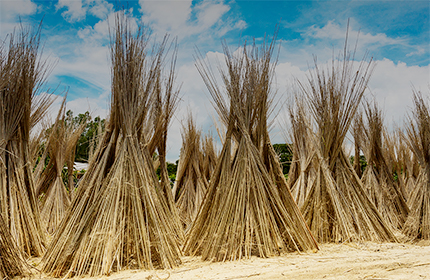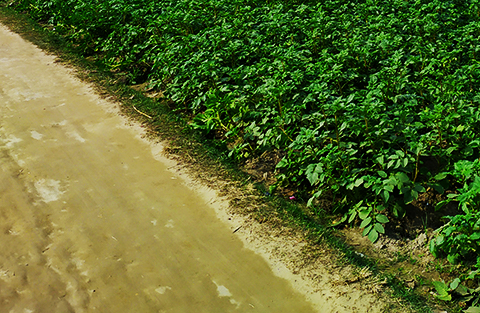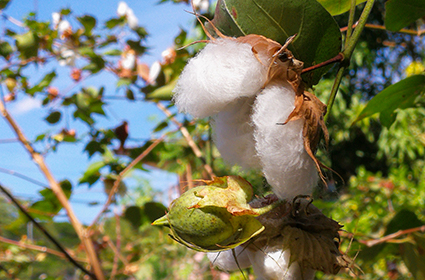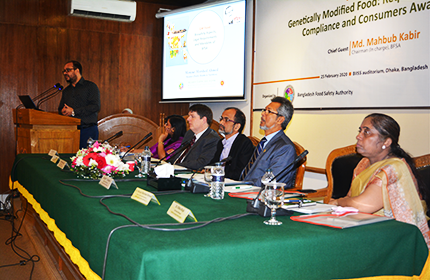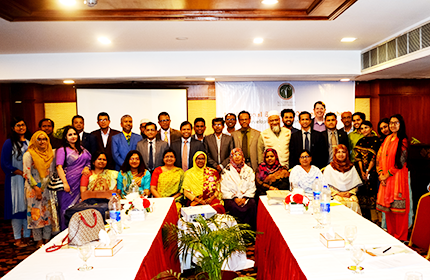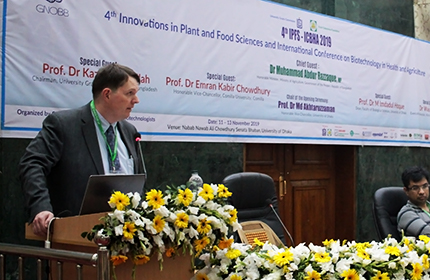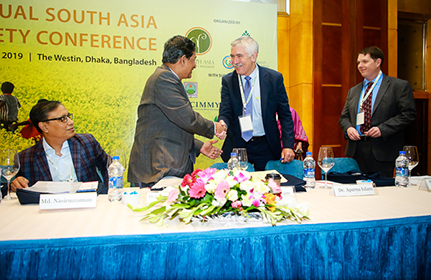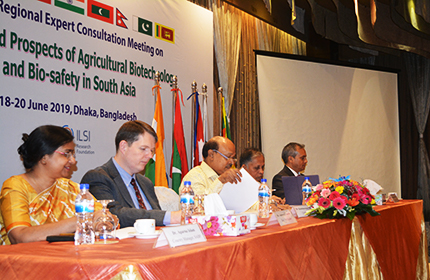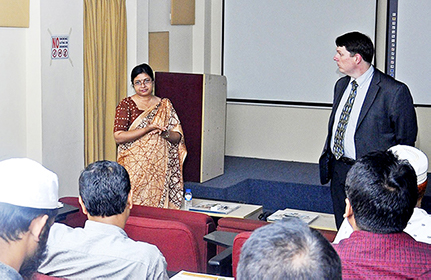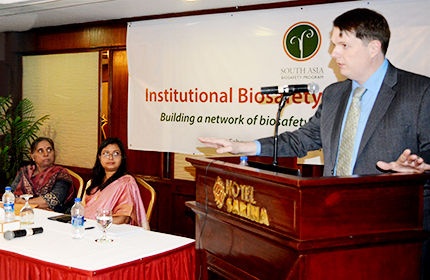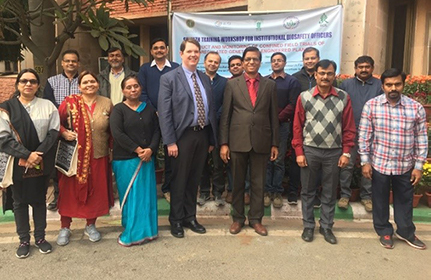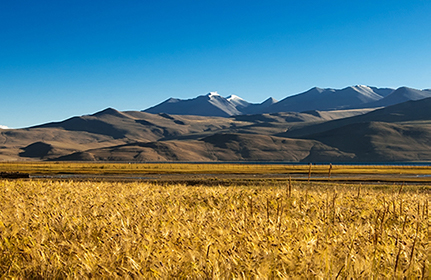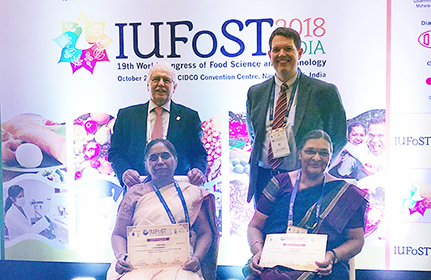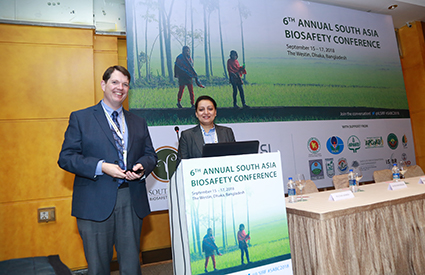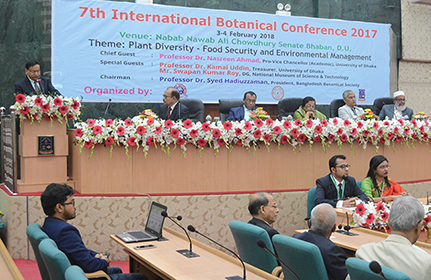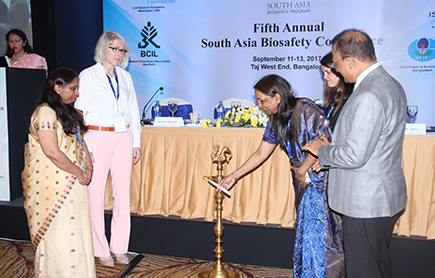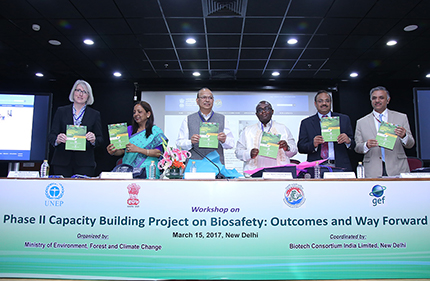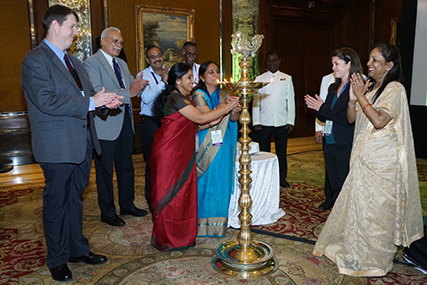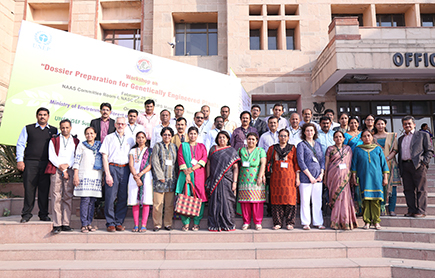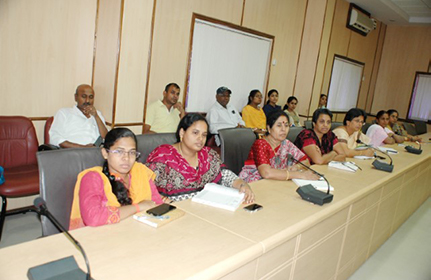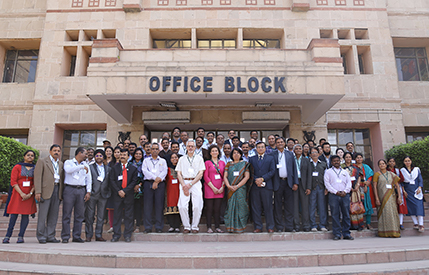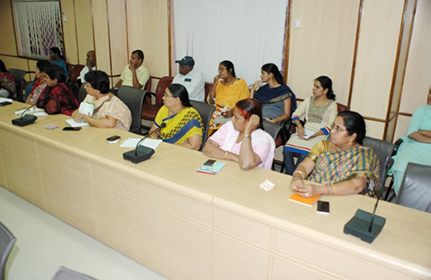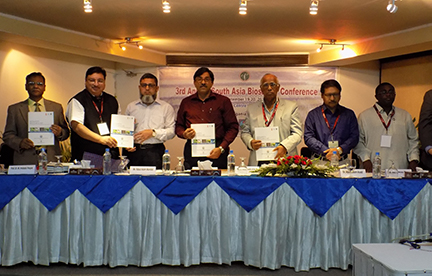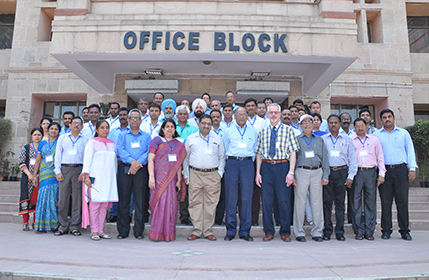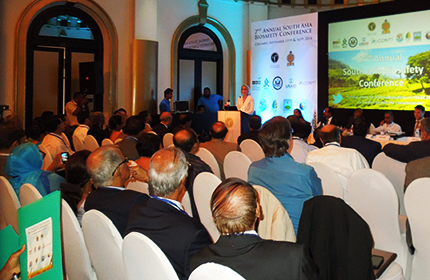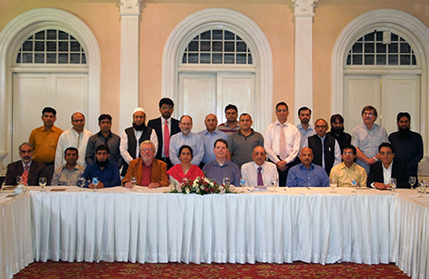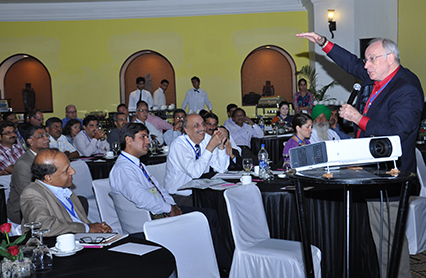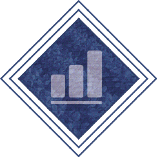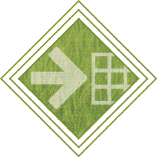Overview
Managed by the Agriculture & Food Systems Institute, the South Asia Biosafety Program (SABP) is dedicated to assisting India and Bangladesh in further strengthening their institutional governance of biotechnology. SABP provides technical assistance to the biosafety risk assessment and research communities and further supports government efforts to implement functional and scientifically sound regulatory processes for agricultural biotechnology.
Over the past two decades, grant funding from the Bill and Melinda Gates Foundation, International Food Policy Research Institute (IFPRI), United Nations Environment Programme (UNEP), United States Department of Agriculture (USDA), and United States Agency for International Development (USAID) helped support various activities conducted under this program.
What We Are Doing
SABP works with its in-country partners to:
- Identify and respond to technical training needs for genetically engineered food, feed, and environmental safety assessment.
- Develop a network of trained, authoritative local experts to communicate about the science of agricultural biotechnology and its biosafety to interested stakeholders.
- Facilitate systems for permitting the safe conduct of experimental field trials of new crops developed using biotechnology so that scientists and farmers can evaluate them.
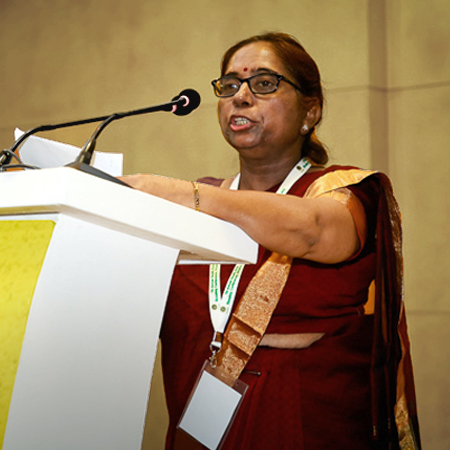
Current Work
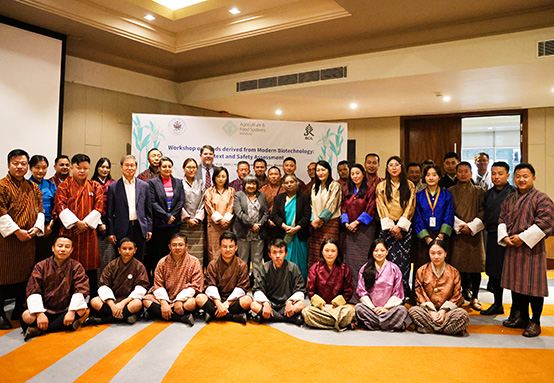
Supporting Harmonization of Safety Assessments of Genetically Engineered Food and Feed in South Asia
With funding from the United States Department of Agriculture Foreign Agricultural Service (USDA FAS), through its Emerging Markets Program (EMP), an Expert Working Group (EWG) with representatives from Bangladesh, Bhutan, India, and Sri Lanka was convened to develop a consensus document on genetically engineered food safety assessment to achieve regionally harmonized guidance. Additional activities under this grant include developing country-specific plans to introduce the consensus statement to relevant stakeholders and support the operationalization of this consensus approach. Multi-day training activities and stakeholder engagement events in South Asia have been and will continue to be organized as part of this effort.
The South Asia Biosafety Program (SABP) engages with regional audiences by publishing a monthly newsletter, which has been in circulation since 2005 and is distributed in print and online through in-country partners in India and Bangladesh. It also maintains the Bangladesh Biosafety Portal (bangladeshbiosafety.org)—the only consolidated repository of documents that inform biosafety regulation in Bangladesh. The website houses a database of curated regulatory documents, standard operating procedures (SOPs), and online materials, which can be filtered, searched, and sorted. It also provides easy and permanent access to official resources pertinent to biosafety research in Bangladesh—“Standard Operating Procedures for Research and Release of SDN-1 and SDN-2 Genome Edited Plants in Bangladesh (2023)” and the “User’s Guide to Biosafety Regulatory Process for GE Plants in Bangladesh (2017)”—as well as informational booklets SABP developed to help researchers, students, and university administrators better understand how the biosafety regulatory system works and the expectations for conducting biotechnology research in the country.
Our Successes
Technological advancements and innovation to improve food and nutrition security through sustainable agricultural production are priorities for Bangladesh. New technologies for plant improvement, such as genome editing, are being used to address the challenges faced by farmers worldwide. Several universities and research institutions in Bangladesh have started projects aimed at harnessing the potential of genome editing to accelerate genetic improvement. Therefore, the Bangladeshi research community benefits from official guidance on:
- The science of genome editing.
- Standard operating procedures (SOPs) for handling genome edited plants during research.
- Techniques used to demonstrate the absence of the transgene from the final genome edited plant.
In December 2023, the Bangladesh Ministry of Agriculture published “Standard Operating Procedures (SOP) for Research and Release of Genome Edited Plants of Categories SDN-1 and SDN-2, 2023” to help facilitate the research and release of SDN-1 and SDN-2 genome edited plants and support plant scientists who are using this technology to address serious challenges, such as climate change, pests, diseases, nutritional quality, and food security.
This SOP:
- Was the culmination of a multi-year drafting process, starting with the formation of a committee by the Secretary of the Ministry of Agriculture, to which the South Asia Biosafety Program’s in-country partners served as members, and stakeholder consultations and discussions throughout 2022 and 2023, for which the Agriculture and Food Systems Institute (AFSI) provided technical support.
- Details the procedure whereby applicants can demonstrate the absence of any exogenously introduced DNA and request confirmation through the appropriate channels to register or release the plant following the same procedure as those used for conventionally bred counterparts.
Throughout 2024, in collaboration with the Bangladesh Agricultural Research Council (BARC), Bangladesh Academy of Sciences (BAS), and Biotech Consortium India Limited (BCIL), the South Asia Biosafety Program (SABP) organized the following events to raise awareness about the SOP:
- Conference on Genome Editing for Agriculture in Bangladesh · February 11, 2024 in Dhaka, Bangladesh
- 3 Workshops on Standard Operating Procedures for Research and Release of Genome Edited Plants in Bangladesh · February 13, April 22, April 23, 2024 in Dhaka, Bangladesh
Biosafety Resource Book Series
To complement its in-person training events and outreach activites, SABP also launched the “Biosafety Resource Book Series” to inform researchers about the prevailing regulatory administrative system of Bangladesh. These plain language materials are designed to help researchers, students, and university administrators better understand how the biosafety regulatory system works and the expectations for the conduct of biotechnology research.
-
Project Name:
Improving the Transparency and Predictability of Biosafety Risk Assessment and Regulation in Bangladesh
-
Years:
2018-2024
-
Funding:
Bill and Melinda Gates Foundation
-
Parties:
Biosafety Regulators, Risk assessors, and Scientists
Biotechnology is used as a tool in basic plant biology research, as well as in the development of new plant varieties needed to address pressing agricultural challenges. In Bangladesh, this kind of work is conducted by national research organizations, public and private universities, and private sector laboratories, all of which must comply with biosafety regulations. Institutional Biosafety Officers (IBOs) need to ensure that biosafety-related activities at their home institutions are successfully implemented in accordance with government-mandated regulations and guidance.
Against the backdrop of continued developments in both research and regulation of agricultural biotechnology in Bangladesh, the South Asia Biosafety Program (SABP), in partnership with the Ministry of Agriculture, Government of Bangladesh, convened training activities across the country between 2020 and 2023, establishing a network of practitioners who exchange experiences and knowledge about best practices for ensuring biosafety during the research and development of genetically engineered plants. This program was modeled after a similar effort SABP launched with the Indian Council for Agricultural Research (ICAR). During the same period, SABP conducted a seminar series with universities in Bangladesh to ensure that biotechnology researchers are familiar with Bangladesh’s biosafety requirements.
-
Project Name:
Institutional Biosafety Officer Training Program
-
Years:
2020-2023
-
Funding:
Bill and Melinda Gates Foundation
-
Parties:
Institutional Biosafety Officers (IBOs) and Committees (IBCs) at research institutions engaged in biotechnology research and development in Bangladesh
-
Country:
Bangladesh
Managed by the South Asia Biosafety Program (SABP), the Biosafety Research in Bangladesh Grants Program (BRBGP) recognized the need for biosafety research as part of a broader effort to support science-based decision-making and policy development. This program funded research that builds local knowledge and establishes baseline data needed to support comparative assessments for agricultural biotechnology. Recipients of the grant also received support for travel to international fora, such as symposia hosted by the International Society for Biosafety Research (ISBR), to present and receive feedback on their work.
The following research was supported by the Biosafety Research in Bangladesh Grants Program (BRBGP):
2019 BRBGP Grant Recipients
- Vegetable Pest Management Practices in Bangladesh and Their Impacts on the Environment, Bangladesh Agricultural University (Project Lead: Muhammad Shahidul Haque, Ph.D.)
- Assessment of Weed Management Practices in Rice Cultivation in Bangladesh, National Institute of Biotechnology (Project Lead: Abdun Noor Muhammad Iftekhar Alam, Ph.D.)
- Use and Handling Practices of Pesticides Used in the Cultivation of High Yielding Potato Varieties in Bangladesh, University of Dhaka (Project Lead: Mohammad Zabed Hossain, Ph.D.)
2020 BRBGP Grant Recipients
- Study on Fertilizer Management and Agricultural Practices of Potato Cultivation in Bangladesh, Advanced Seed Research & Biotech Centre (Project Lead: Abu Shamim Mohammad Nahiyan, Ph.D.)
- Insect Pest Management Practicies and Biosafety Status of Country Bean (Lablab purpureus L.) in Bangladesh, Sylhet Agricultural University (Project Lead: Md. Fuad Mondal, Ph.D.)
2021 BRBGP Grant Recipients
- Assessment of Impacts of Pesticide Application in the Cultivation of High Yielding Maize Varieties in Bangladesh, Bangladesh Agricultural University (Project Lead: Gopal Das, Ph.D.)
- Baseline Information of Pest and Beneficial Insect Biodiversity of Cotton in Bangladesh, Bangladesh Agricultural University (Project Lead: Mohammad Tofazzal Hossain Howlader, Ph.D. )
-
Project Name:
Biosafety Research in Bangladesh Grants Program (BRBGP)
-
Years:
2019-2022
-
Funding:
USAID
-
Geography:
Bangladesh
The South Asia Biosafety Program (SABP) provided technical and financial support to the South Asian Association for Regional Cooperation (SAARC) Agriculture Center (SAC) to help facilitate the SAARC Regional Expert Consultation Meeting on the Progress and Prospects of Agricultural Biotechnology and Biosafety, held in Dhaka, Bangladesh on June 18-20, 2019.
The consultation was organized to:
- Share information about the current status of agricultural biotechnology and biosafety regulation in the region.
- Discuss regional harmonization.
- Advance recommendations to the SAARC Secretariat.
Some of the consensus recommendations arising from the meeting include:
- SAARC countries share policy goals and principles related to biotechnology and biosafety, and the SAARC Secretariat and SAARC member countries should actively pursue harmonization efforts in this area.
- SAARC and other national and regional organizations should continue to support consultations and dialogues related to regional harmonization for biotechnology and biosafety.
- Information sharing mechanisms, including the establishment and maintenance of web portals to facilitate information exchange between SAARC countries, should be prioritized.
- SAARC should explore opportunities to provide a platform for hosting and sharing data collected and associated with regulatory applications to SAARC member countries, including possibly a database or other data repository.
- SAARC should continue to support the development of regional standards related to biosafety through the South Asia Regional Standards Organization (SARSO).
- SAARC, through the SAC, should support the preparation of tools to enable biosafety assessments.
These recommendations were published by the SAARC Agriculture Center as a standalone book.
-
Project Name:
Consultation Meeting on the Progress & Prospects for Agricultural Biotechnology & Biosafety in South Asia
-
Years:
2019
-
Funding:
USAID
-
Parties:
Biosafety Regulators, Risk Assessors, and Scientists
-
Countries:
Bangladesh, Bhutan, India, Nepal, Pakistan, and Sri Lanka
India identified mitigation of the effects of climate change on its agricultural productivity as a national priority. Over 30 Indian Council of Agricultural Research (ICAR) institutes have active research programs developing and evaluating genetically engineered plants to improve resilience to biotic and abiotic stressors that would benefit from well-trained biosafety practitioners to ensure that biosafety-related activities at their home institutions are successfully implemented in accordance with government-mandated regulations and guidance.
Committed to compliance with biosafety regulations regarding genetically engineered organisms, ICAR partnered with the South Asia Biosafety Program (SABP) on a technical training activity involving ten ICAR institutions actively working to develop new genetically engineered plants.
- Each of the ICAR institutions nominated two individuals to become Institutional Biosafety Officers (IBOs).
- The IBOs worked together to develop the resources needed for a functioning, fit-for-purpose institutional biosafety program. This included creating standard operating procedures (SOPs), staff training materials, and processes for biosafety audits of research facilities.
- Eight workshops were conducted between April 2015 and September 2019 as part of this program.
-
Project:
ICAR Institutional Biosafety Officer Training Workshops
-
Years:
2015-2019
-
Partners:
Indian Council of Agricultural Research (ICAR), Biotech Consortium India Limited (BCIL)
-
Geography:
India
Discover
Publications
Frequently Asked Questions: Genome Edited Plants
Biosafety Resource Book Series | April 4, 2024
Published by the South Asia Biosafety Program, this booklet provides information about genome edited plants in a simple language, so readers may better understand the science, applications, and policies at the global and national levels.
Frequently Asked Questions: Genetically Engineered Plants and Biosafety
Biosafety Resource Book Series | March 30, 2021
The South Asia Biosafety Program designed this booklet to address some of the questions the general public may have about the safety of genetically engineered plants, with explanations in easy and understandable language.
Biosafety Regulation and Processes in Bangladesh: A Guide for Researchers in Agricultural Biotechnology
Biosafety Resource Book Series | November 19, 2020
Part of the South Asia Biosafety Program’s capacity development interventions, this publication aims to inform researchers about the prevailing regulatory administrative system of Bangladesh and outlines the regulatory processes functioning at different stages of research and development of GE crops.
Agricultural Biotechnology and Biosafety in South Asia: Progress and Prospects
SAARC Agriculture Centre | September 30, 2019
This book contains the papers and proceedings of the SAARC Regional Consultative Meeting on the Progress and Prospects of Agricultural Biotechnology and Biosafety in South Asia, which took place on June 18- 20, 2019 in Dhaka, Bangladesh.
An Analysis of the Development and Regulation of Agricultural Biotechnology in Pakistan
December 14, 2012
The purpose of this analysis is to present the context for biosafety regulation in Pakistan, including the investment and infrastructure currently dedicated to advanced agricultural technologies, and to review the legal and regulatory framework present in the country.
Events
-
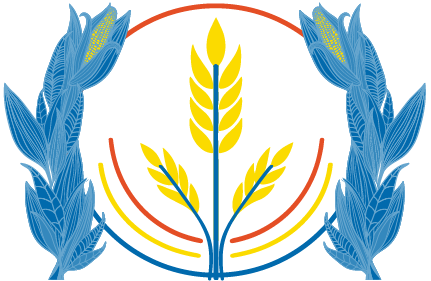 Second Capacity Building Workshop on Food Safety Assessment of Genetically Modified Plants
Second Capacity Building Workshop on Food Safety Assessment of Genetically Modified PlantsDecember 11, 2025-December 13, 2025
Colombo, Sri Lanka
-
 Capacity Building Workshop on Food Safety Assessment of Genetically Modified Plants
Capacity Building Workshop on Food Safety Assessment of Genetically Modified PlantsSeptember 22, 2025-September 23, 2025
Colombo, Sri Lanka
-
 Third Capacity Building Workshop on Food Safety Assessment of Genetically Engineered Plants
Third Capacity Building Workshop on Food Safety Assessment of Genetically Engineered PlantsAugust 20, 2025-August 22, 2025
New Delhi, India
-
 Second Capacity Building Workshop on Food Safety Assessment of Genetically Engineered Plants
Second Capacity Building Workshop on Food Safety Assessment of Genetically Engineered PlantsJune 3, 2025-June 4, 2025
New Delhi, India


